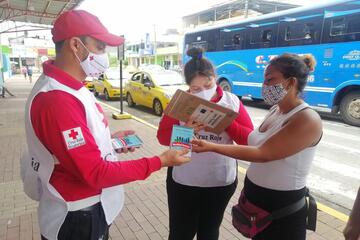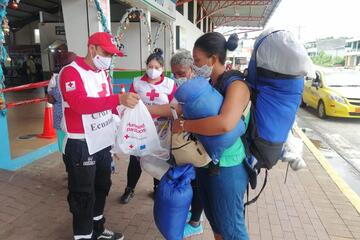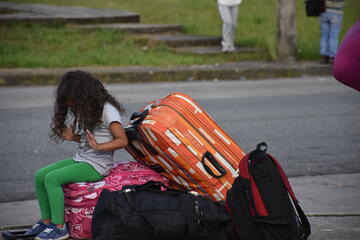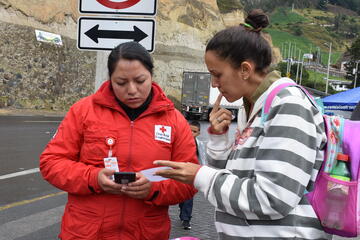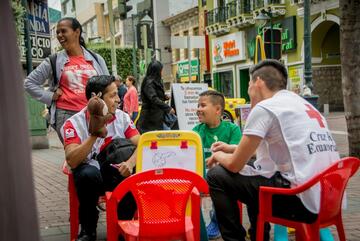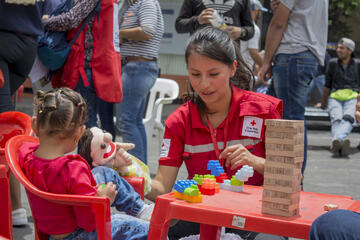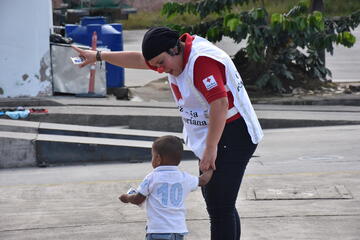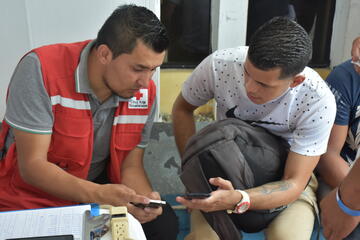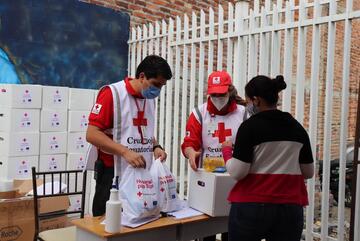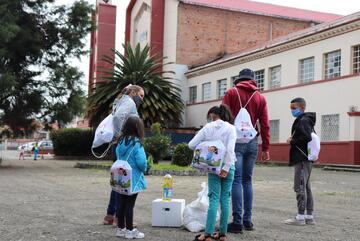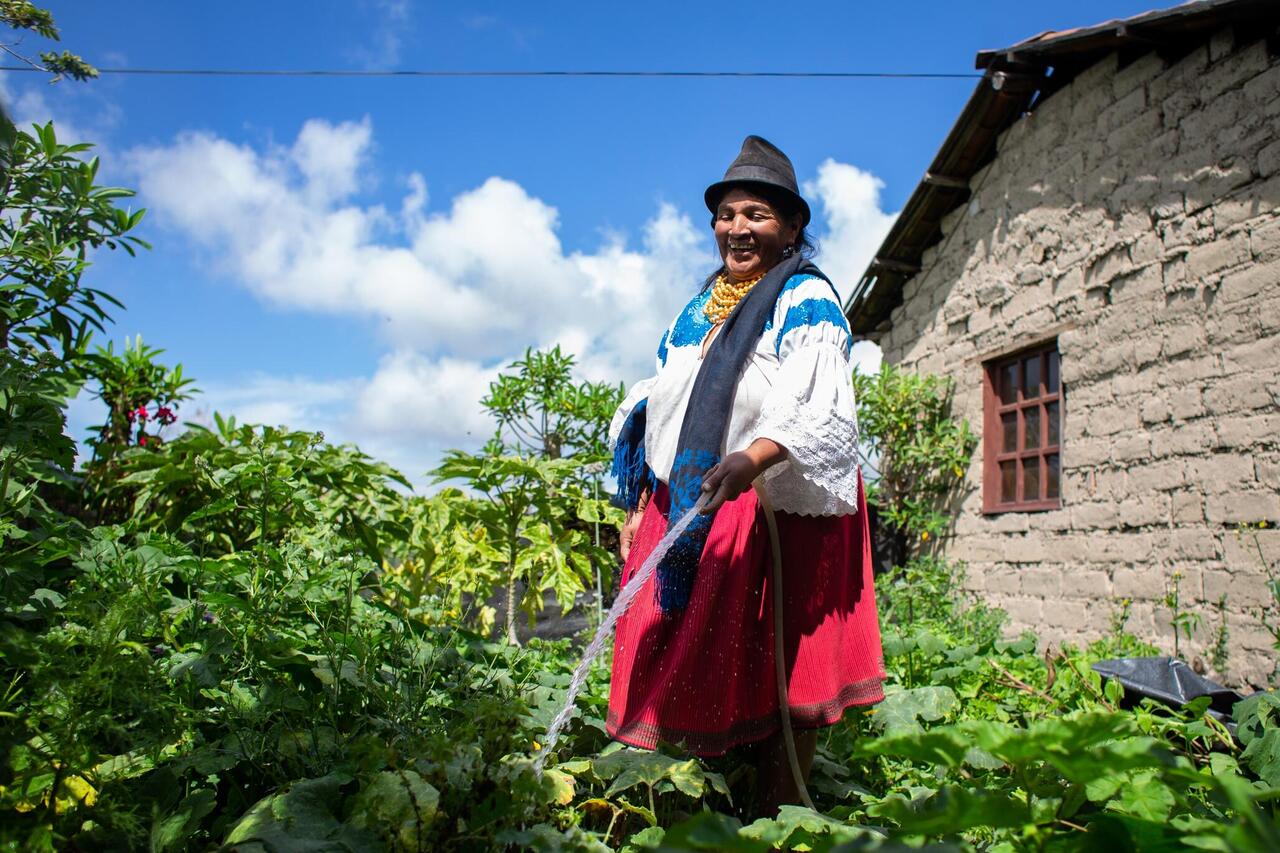Ecuador: Integration as foundation for a better life
Berlin / Quito, 10 March 2021
Due to a long-lasting crisis, millions of Venezuelans have left their home country. Many of them are looking for a better life in Ecuador, but there is a lack of work and acceptance within the Ecuadorian population. Together with the Red Cross Ecuador, we launched a project at the end of last year to help Venezuelan migrants and host communities with integration in four cities across the country.
Between 2016 and 2019, approximately 1.8 million Venezuelans made their way to Ecuador. It is estimated that around 400,000 of them have remained in the country. For new immigrants, conditions are worsening. Changes to the migration law and the introduction of a visa requirement in 2019 have led to more and more people entering the country illegally and without any support, security or recognition from the state.
Lack of employment opportunities leads to food insecurity
Due to a lack of financial capacity, many of the refugees settle in the poorer neighbourhoods of the city, where they often live from informal work or street vending. The lack of employment opportunities leads to extreme poverty. The COVID-19 pandemic exacerbates the situation. Due to curfews, many street vendors lose their only income. This affects migrants and host communities alike, leading to rising social inequality across the country. "In Latin America, around half of the working population is employed in the informal sector. Almost 4 million of the small and medium enterprises have already had to close due to COVID-19, which inevitably leads to higher competition in the labour market and rising xenophobia," says Sandra Weppler, Head of our Country Office in Ecuador.
Growing xenophobia and discrimination
For example, migrants are accused of taking away jobs and being responsible for an increase in violence in the country. This leads to tensions within the host communities and even physical violence. Thus, not only the physical but also often the mental health of the refugees is at risk. "The tensions and stress put migrants under enormous psychosocial stress, across all age groups," Sandra Weppler fears. In our project, she sees an opportunity to strengthen resilience among Ecuadorian and Venezuelan people alike and to build community ties.
Project supports refugees with integration
The aim is to facilitate economic and social integration in the three largest cities of the country, Quito, Cuenca and Guayaquil, as well as in the city of Ibarra. On the one hand, the migrants receive better access to information and legal advice. On the other hand, it opens up the possibility for them to complete training in order to integrate into the labour market. In addition, the capacities of the host communities are strengthened. Through joint activities, such as the construction or equipping of community gardens and sports facilities, the two groups can come into contact and thus improve their coexistence. Discrimination and xenophobia are thus reduced. " In this context, coping with individual and family stress and strain situations plays an important role," says Sandra Weppler. "This is supported with psychosocial care and reference mechanisms on the part of the Johanniter partner." Particular attention is paid to women and children, as they are especially at risk of discrimination and exploitation and suffer greatly from the loss of their homes.
The project is financially supported by the German Federal Ministry for Economic Cooperation and Development (BMZ).
